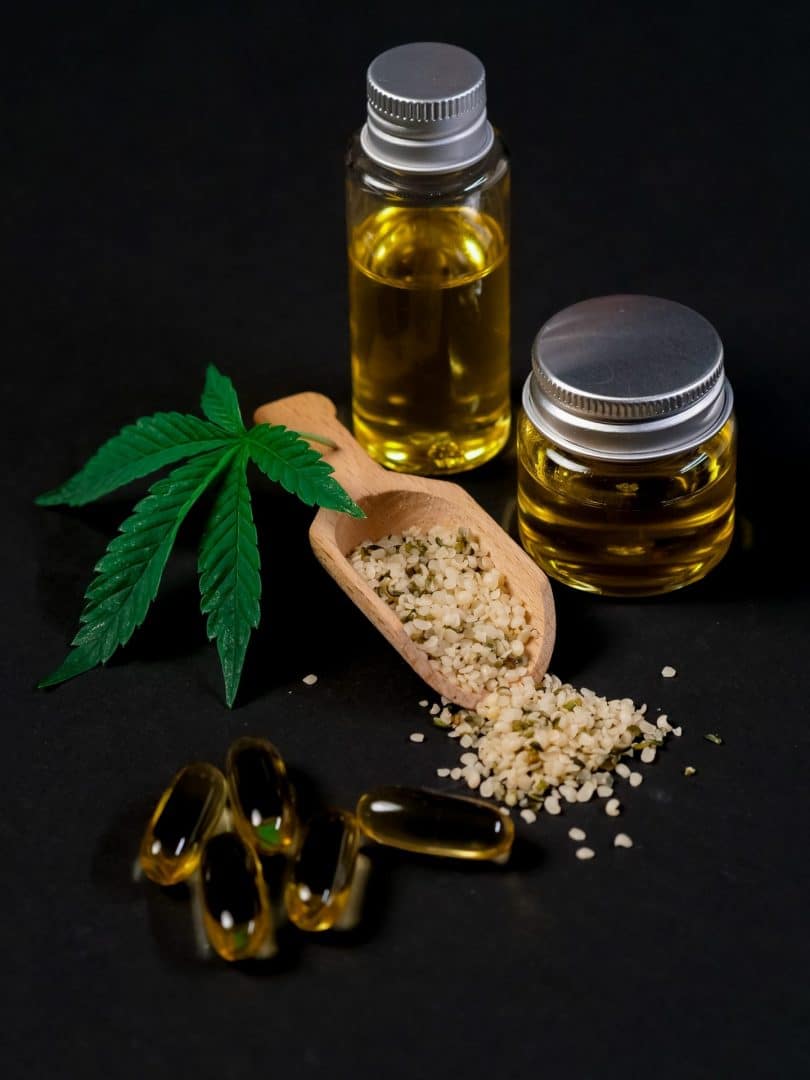Since ancient times, people have been using some form of Cannabis for thousands of years. It all started with the cultivation of hemp, one of the earliest agricultural crops. The Cannabis plant has also been documented in different ancient cultures to have been used in medicinal, spiritual, and recreational practices.
In many regions of the ancient world, hemp was cultivated for its fibre, and they used the seeds to make food and oil. There is archaeological evidence that ancient people used hemp to make ropes, textiles, and paper.
The Beginnings of One Plant
The history of Cannabis’ medical use dates back several thousand years old, as attested both by archaeological evidence of the plant’s remains and written records of Ayurvedic medicine. Hindu culture considered hemp as a holy plant. Sacred Hindu texts (Vedas) refer to it as a source of happiness and joy, and a liberator of fear.
During this time, Cannabis buds, flowers and leaves were ground into a paste and made into a drink called bhang. The raw paste is then added to food and drinks and is still being used to this day during Hindu religious practices, festivals and rituals including the popular festival of Holi. In Ayurvedic medicine, bhang is also used as a remedy to various ailments which includes physical pain, vomiting, and nausea.
Also, one of the earliest references to Cannabis dates back to an ancient Chinese pharmacological book, titled Shen Nung Pen Ts’ao Ching (The Classic Herbal Medicine). Chinese Emperor Fu Hsi called Cannabis a popular medicine back in 2,900 BC, and by 100 AD had more than 100 uses for Cannabis. From China, coastal farmers brought Cannabis to Korea around 2,000 BC and began its spread throughout the rest of the world.
The idea that Cannabis is an evil drug is a recent construction with racist implications. Why it became illegal can be considered a historical anomaly when, in reality, Cannabis has been legal in many regions of the world for most of its recorded ancient history.
How Medical Cannabis Can Change Your Life
Before we proceed further, let us categorically state that there is no conclusive evidence that Cannabis is a ‘gateway drug.” There is evidence, however, of proof of how it has been used throughout recorded history of its use for medicinal and ritual purposes other than being used for recreational purposes.
In recent times, Cannabis has shown that it can help patients suffering from chronic pain, epilepsy, anxiety, and even cancer. That being said, let us discuss the beneficial effects of Cannabis and how it can possibly change your life.
Whatever apprehension you may have, or the stigma associated with Cannabis use, the only way to break down stigma is to replace them with real human experiences of the benefits it can bring and how it can improve the quality of lives.
1. Chronic Pain Management. It is by far the most common condition being treated by medical Cannabis. Most people who seek medical Cannabis do so for pain management for various ailments. Patients with chronic pain usually use opioids or other prescription drugs in order to perform even the most mundane of daily tasks without pain.
Granted that there is still little evidence that could show definitive statements on the effectiveness of medical Cannabis, but those who have been using it attests to how it helped them ease their aches and debilitating pain.
Regardless of controlled research and studies, patients do report many benefits of CBD. Part of the allure in using medical Cannabis is that it is definitely safer than opiates. It is next to impossible to overdose on it and, by far, less addictive. Medical Cannabis can help patients with chronic pain reduce their intake of opiates and pain medication, and depending on their condition may replace them entirely, but with doctor’s advice of course.
CBD has already been found to be effective against pain even without THC. This is one reason why it got noticed and hit the world by storm. People are now allowed to relieve themselves of their affliction without the psychoactive effects brought by THC.
2. Lowers the Need for Mental Health Medications. If patients with chronic pain experience relief from medical cannabis, it is found that those suffering mental ailments such as anxiety, depression, and bipolar disorder draw benefit from it too. The greatest benefit is that these ailments can be treated without the uncomfortable side effects brought about by the use of psychiatric medications.
Regardless of which part of the world you live in and regardless of what legal status the use of medical Cannabis is in your country, many patients with mental health disorders who use Cannabis report improvement in their symptoms, apart from those mentioned above, such as those with PTSD, Anxiety, Depression, and even schizophrenia as one study concluded.
3. Regulate Seizures. In a study, the use of CDB has shown that it can be beneficial in controlling seizures. Perhaps the best and most well-known individual, whose battle with Dravet syndrome (a rare form of epilepsy), inspired changes to medical Cannabis laws that helped in making CBD a popular option for seizure in the medical Cannabis world.
Charlotte Figi was only three-years old when she had her first seizure, which only increased in frequency and intensity as she got older. By the time she was five years old, she was suffering roughly around 300 grand mal seizures per week.
Because of this, her parents and her doctor decided to put her in a medically induced coma to prevent further deterioration of her body. Left with no other options, the family decided to turn to medicinal Cannabis.
With outstanding results, Charlotte suffered no seizures in her first week of dosing on Cannabis oil. A special strain was created for her with no psychoactive effects by Stanley Brothers. The strain worked so well that the brothers decided to change the name of the strain they created to Charlotte’s Web in honour of her, and it became the world’s most trusted hemp extract.
Though this story is inspiring, it’s unfortunate to note that Charlotte Figi passed away in April 2020 at age 13. She suffered a seizure, resulting in respiratory failure and cardiac arrest. Despite the negative test results, the family suspected she had contracted COVID-19.
4. Reduce Tremors. Parkinson’s disease is a progressive nervous system disorder that affects movement in patients. Perhaps the most notable symptom of this disease is the involuntary tremor or shaking of the limbs. Parkinson’s disease causes certain brain cells (neurons) in our brain to break down gradually or even die.
These neurons are producers of a brain chemical called dopamine. Low levels of dopamine can cause abnormal brain activity that leads to impaired movement and other symptoms of the disease. However, dopamine isn’t the only neurotransmitter that is affected in people with Parkinson’s disease, it also affects multiple chemical systems in the brain, but loss of dopamine is by far the most significant.
Since there is no cure for Parkinson’s disease, treatments are typically focused on reducing its symptoms. Medical Cannabis might be of beneficial use in this area since it has been observed to improve both motor and non-motor symptoms including bradykinesia, or the slowness of movement and is one manifestation of Parkinson’s disease.
5. Better Quality of Life for Patients with Cancer. Although medicinal Cannabis research remains in its early stages, so far there has been strong evidence that it is safe and powerful medicine for those living with cancer. Apart from providing an improved quality of life to those who need an effective neuropathic pain strategy, medical Cannabis provides relief from nausea, vomiting and loss of appetite they experience during chemotherapy and radiation treatments.
More recent studies show that THC and other cannabinoids such as CBD slows the growth and can even cause the death of certain types of cancer growing in lab dishes. Animal studies have also shown that certain cannabinoids slow the growth and spread of some forms of cancer.
Early clinical trials in humans so far have shown that cannabinoids can be safe in treating cancer, but they do not, however, show that they help control or cure the disease.
There is still a need for more scientific research on cannabinoids for cancer patients. The need is there to understand and seek better and effective therapies that can overcome the often-debilitating side effects of cancer and its treatment.
These are just some diseases that affect the quality of life of people afflicted with these ailments and there are more ailments of lesser degree of seriousness but can also impact improvement in how we move, function and live day to day.
For now, it may not be a cure-all, some may even deride its use as akin to using ‘snake oil.’ Positive testimonies of its users believe the fact that it is not without its benefits and their use of it has
Please note that no content on this site, regardless of date, can be used as a substitute for direct medical advice from your doctor, GP or other qualified clinician. If you’re interested in learning more about medical Cannabis or enquire about other conditions where medicinal Cannabis can help, contact us today.

